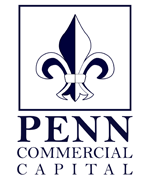What Are the Most Common Types of Small Business Loans?
In 2019, the United States Small Business Association (SBA) guaranteed over $28 billion in loans to U.S. entrepreneurs. That is a lot of funding meant to help new businesses to open or small businesses to grow. If you require an infusion of cash for your business, there are several sources from which you can obtain small business loans to tap into that funding.
Read on to learn about the most common types of loans for small businesses you may qualify for and how to determine the right option for you.
Common Options for Small Business Loans
There are a number of business loans available for owners of small businesses, each with its own features. The challenge for many small business owners is that they may struggle to determine what they qualify for and what will work best for their current needs. The following is an overview of a few loans that are popular among small business owners, including some of their unique attributes.
Term Loans
A term loan comes in the form of a single lump sum of cash that you repay over the course of a specified term. Generally, the monthly payments are fixed and include interest along with the principal payment. However, you do need to make sure that the term and the payments fit into your budget, as well as if you can repay the loan early without penalty.
You have the freedom to use term loans to suit a variety of purposes, including paying bills and buying equipment. However, each term loan program might have specific limitations regarding how the funds can be used, so be sure to check with your lender.
SBA Loans
When it comes to loans for small businesses, SBA loans are a favorite of many entrepreneurs. They are low-cost and backed by the government. However, they tend to have a lengthy application process. If your business is in need of funds right away, an SBA loan may not be the best choice.
However, if you are looking for favorable loan terms, then the SBA might an option worth considering, especially if your business does not have many financing options available due to its size or location.
Microloans
Microloans are an excellent option for small businesses that need a loan of $50,000 or less. A lot of these are available through nonprofit entities or the government (including the SBA). These loans can be a great way to make small purchases or finance aspects of your business that you might not be able to afford at the moment. It also gives you a way to spread payments out, while still benefiting from the purchase right now.
Despite their relatively small size, you will likely be required to put up collateral in order to be approved. Collateral can come in the form of personal finances, property, or business assets. It will depend upon your lender the type of collateral required and how much they will request before approving you for the loan.
Business Line of Credit
If you’re familiar with credit cards (and who isn’t?), then a business line of credit should not be difficult to understand. These provide small businesses with a line of credit that is typically accessed through a checking account. It can also be a revolving line of credit, making it available to cover expenses when you need it and favorable repayment terms.
They work by allowing you to spend up to whatever your maximum credit limit is, pay the amount off, and then continue to borrow. That can make it flexible by providing funds when you need them during slow seasons and allow you to pay that amount off during your busy season. It can be a way to stay current on your operating expenses and keep your business financially sound.
A business line of credit is suitable for those who aren’t sure how much money they are going to need. You only pay interest on the amount of money you withdraw instead of the entire loan amount. That means you are in control of how large or small your payments are.
Invoice Factoring and Financing
If you experience difficulty receiving payments on time, but know the money is coming, invoice factoring and invoice financing can be excellent options. Invoice factoring involves selling unpaid invoices to a lender who, in turn, pays you a percentage of the invoice immediately.
Invoice financing allows you to use unpaid invoices as collateral to qualify you for an advance on the money owed to your business through the invoice. That type of loan means you are essentially giving away the funds from those invoices to the lender so that you can tap into the cash right now.
Through invoice factoring, the company that buys your invoices controls the collection of payments. With invoice financing, you are required to collect the payments so that you can repay what you borrowed.
Franchise Loans
Franchises are a great option for those who want to be small business owners without starting from the bottom. However, franchises require money to get started but they also have the benefit of providing systems and recognizable names that makes it easier for your business to get off the ground.
A franchise loan is a small business loan that provides money to pay the fees necessary to get your franchise going and also address any of your initial needs. The terms can be favorable, but it is important to understand what the terms are and whether your lender has any specific collateral requirements.
You Have Options
There are several common small business loans you can choose from. The right choice will usually come down to your business needs and provides the best repayment options.
Contact us today to learn more about affordable funding solutions and how Penn Commercial Capital can help you secure small business loans.

